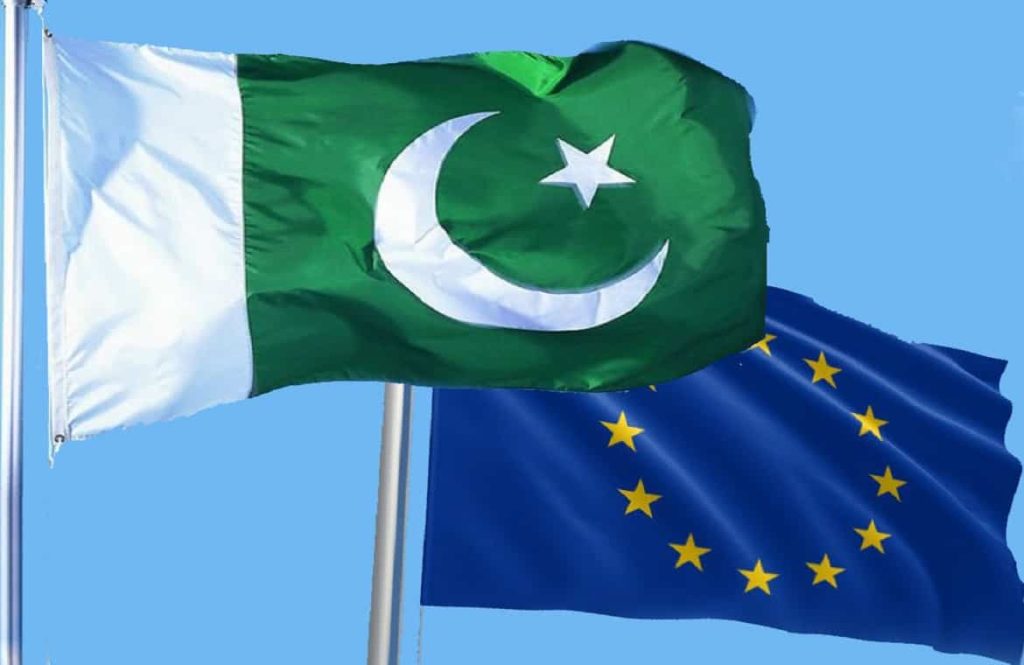Pakistan’s market access to the European Union (EU) is facing mounting challenges as the global trade landscape evolves. As one of Pakistan’s largest trading partners, the EU accounts for a significant share of the country’s exports, making this relationship crucial for economic stability. However, recent developments indicate potential risks that could impact Pakistan’s preferential access under the Generalized Scheme of Preferences Plus (GSP+).
Key Risks to EU Market Access
The GSP+ scheme, which provides Pakistan with duty-free access to EU markets, is tied to strict compliance with international conventions on labor rights, governance, and environmental standards. Non-compliance or inadequate progress on these benchmarks poses a significant threat to the continuation of these benefits.
Moreover, growing competition from other developing nations, alongside shifting EU trade policies emphasizing sustainability and ethical practices, further complicates Pakistan’s position. Rising scrutiny on human rights and labor conditions in the country has also drawn attention, putting its trade privileges at potential risk.
Impact on Exports
Key sectors, including textiles, garments, and leather goods, which form the backbone of Pakistan’s exports to Europe, are highly vulnerable to disruptions in market access. A withdrawal or reduction of GSP+ benefits could lead to higher tariffs, making Pakistani products less competitive compared to regional competitors like Bangladesh and Vietnam.
Steps to Mitigate Risks
To safeguard its trade interests, Pakistan must adopt a proactive approach. Key strategies include:
- Strengthening Compliance: Implementing policies that ensure adherence to international labor, environmental, and governance standards
- Diversifying Exports: Expanding the product range and exploring new markets to reduce dependency on the EU.
- Engaging with the EU: Strengthening diplomatic and trade relations to address concerns and negotiate favorable terms.
- Investing in Sustainability: Adopting eco-friendly and sustainable practices to align with the EU’s Green Deal objectives.
The Road Ahead
While the risks are significant, they also present an opportunity for Pakistan to reform its trade policies and enhance its competitiveness. By addressing compliance issues and fostering innovation in its export sectors, Pakistan can not only secure its EU market access but also build a more resilient trade framework for the future.
The government, businesses, and industry stakeholders must work collaboratively to ensure Pakistan remains a preferred trading partner for the EU, safeguarding economic growth and development.



Comments (0)
No comments yet. Be the first to comment!
Leave a Comment